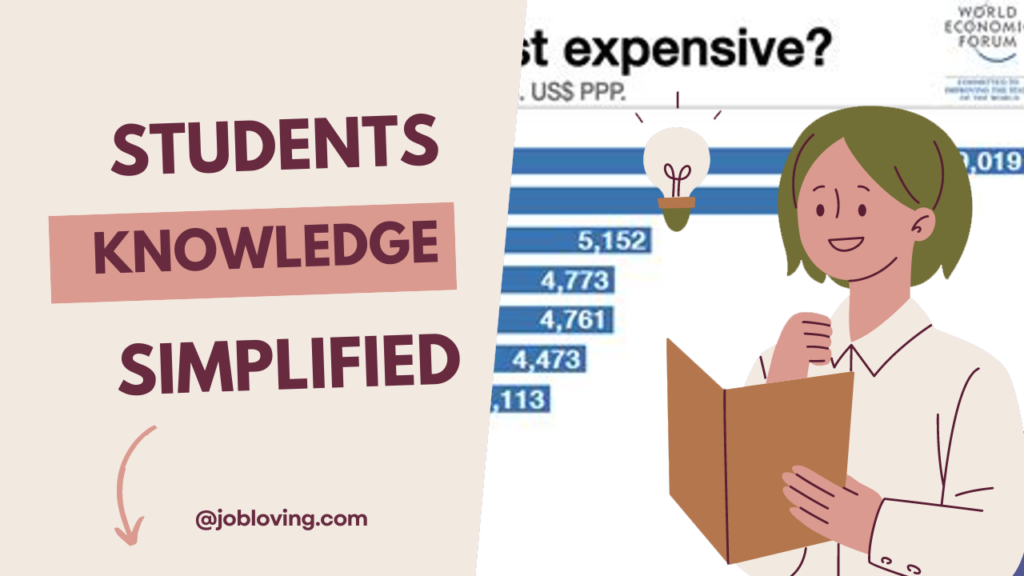Which European Country Takes the Crown for Expensive Tuition Fees?
When it comes to pursuing higher education, the cost can vary drastically from one country to the next, especially in Europe. As students weigh their options, helpfully knowing which nations are most wallet-unfriendly can make all the difference. Recent studies have thrown light on Europe’s educational landscape, revealing that Switzerland reigns supreme as the most expensive country for university fees, while other countries like the United Kingdom and Ireland also keep rising in the rankings. Let’s take a deeper dive into the tuition fees you can expect across the continent.
1. Switzerland: The Ace of Expensive Education
Switzerland’s universities are synonymous with high quality—like Swiss watches, they’re precision-engineered to deliver. However, this perfection comes with a hefty price tag. Tuition fees for all students hover between €876 and €3,502 annually. While this doesn’t sound overwhelming at first, it’s the living expenses that truly elevate costs, especially if you’re eyeing cities like Zurich or Geneva. The living costs there could easily surpass your tuition fees.
Remember, especially for international students, living in Switzerland doesn’t mean sacrificing lifestyle; you’ll find high standards of living, excellent public services, and spectacular scenery. But it’s definitely a financial commitment!
2. United Kingdom: A Land of Varied Fees
Next on our list is the United Kingdom, where tuition fees reign supreme in terms of average costs, particularly for international students. The average annual tuition ranges from £9,876 to £10,028 (approximately €11,500). When you’re a student here, you’ll quickly realize that the UK is not just about publishing great literary novels; it’s also about publishing your financial statements in the red if you aren’t careful!
Each region has different fee structures, but overall, students are fiercely competing for a place in esteemed institutions such as Oxford or Cambridge. As tuition fees directly correlate to the quality of education and student networks, many consider it worth the upfront costs. Just don’t forget to factor in the London living expenses if you plan on hitting the books in the capital!
3. Ireland: Higher Costs for an Irish Education
Emerald Isle lovers, beware! Studying in Ireland comes with an annual student contribution fee of approximately €3,000. Surprisingly, about 60% of students find themselves footing this bill. While it may not sound exorbitant compared to other countries, getting a degree from Trinity College Dublin or University College Cork is still a financial endeavor. Unfortunately, student loans aren’t common, meaning most need to find other ways to manage their finances. With Ireland’s lively culture and stunning scenery, many believe the investment is worth every penny.
4. Hungary: An Upsurge in Study Costs
Surprise, surprise! Hungary has made headlines recently for its growing costs, with tuition fees skyrocketing to up to €13,871 in certain programs. Known for its rich history and vibrant capital, Budapest, this country is drawing in more international students. While the price tag may look steeper, if you can manage your budget wisely, Hungary offers stunning adventures alongside an enriching academic experience.
The Rest of Europe: A Mixed Bag of Costs
Other European countries also showcase their diverse educational costs. Lithuania sees tuition fees ranging from €1,073 to €11,576, representing a wide gap that impacts about 38% of students.
In Wales, tuition fees cap at £9,000, with a whopping 92% of eligible students turning to loans to cover expenses. Thus, financial planning becomes essential.
Meanwhile, Finland provides free tuition for EU/EEA students, yet non-EU students face costs potentially rising to €18,000. If you don’t already speak Finnish or Swedish, this is a great opportunity to dive into something new while enjoying a free education.
Shifting to France, the fees differ wildly: EU students pay as low as €170 for undergraduate programs, while non-EU students rack up averages of €2,770. It’s vital to be mindful of living costs, as areas like Paris can put a dent in any budget.
Living Expenses: The Unsung Hero of Educational Costs
While tuition fees are a tangible cost students can immediately see, the often-overlooked living expenses significantly shape the ultimate cost of studying abroad. In many cases, living expenses can surpass tuition, especially for countries with high standards of living. For instance, Denmark boasts relatively modest tuition at around €0 for EU students, but living costs could reach a staggering €14,400 per year, making it important to budget effectively to enjoy the full experience without financial strain.
Considering student accommodations, food, transport, and leisure, students should anticipate a comprehensive financial strategy. Many countries provide financing options including grants and loans, though only 15 European systems saw over 5% of students seeking tuition loans, meaning financial acumen is essential.
The Upsides: Education Quality vs. Financial Commitment
The relationship between an education’s quality and its cost is a nuanced, complex one. As a general rule, the countries with higher tuition fees tend to offer superior educational facilities and access to top-tier networks. High tuition can mean better faculty, resources, and research opportunities—all essential to a promising future.
However, that doesn’t mean students should throw caution to the wind. It’s paramount to conduct thorough research into scholarships, grants, and financial aid. In many European countries, merit-based grants and need-based financial support can significantly alleviate the budgeting burden.
Conclusion: Calculate Costs Wisely
Ultimately, the choice of where to study in Europe boils down to striking a balance between your budget and your educational aspirations. The learning journey is expansive, and finding the right institution in the most suitable country for your wallet will be pivotal. Every student’s priorities will differ—whether it’s the prestige of a university, the cultural experience, or an all-important budget.
Whether you’re aspiring to learn amidst the picturesque landscapes of Switzerland, dive into history in Hungary, or enjoy the lively atmosphere of Ireland, being aware of the costs is the first step towards ensuring that your educational dreams don’t turn into financial nightmares. So grab your calculator, do the math, and embark on an academic adventure that’s both enriching and financially sound!

